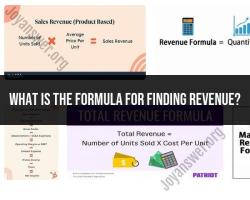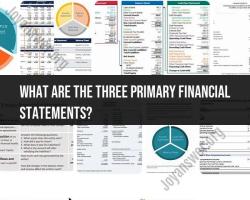Are municipal bonds tax free?
Municipal bonds (often referred to as "munis") can provide certain tax benefits, but it's essential to clarify that not all aspects of municipal bond investments are entirely tax-free. Here are key points regarding the tax benefits of municipal bonds:
Interest Income:
- One of the primary tax benefits of municipal bonds is that the interest income they generate is often exempt from federal income taxes. This tax-free status applies when investors hold bonds issued by a state, municipality, or other local government entity within their state of residence.
State and Local Tax Exemption:
- In addition to federal tax benefits, the interest income from municipal bonds is often exempt from state and local income taxes if the bonds are issued by entities within the investor's state. This provides an additional layer of tax advantage, particularly for in-state investors.
Tax-Exempt Mutual Funds:
- Investors can also gain exposure to municipal bonds through tax-exempt mutual funds or exchange-traded funds (ETFs). These funds invest in a diversified portfolio of municipal bonds, and the dividends distributed to investors may enjoy tax-free status, similar to holding individual municipal bonds.
Alternative Minimum Tax (AMT):
- While municipal bond interest is generally tax-free, it's important to be aware of the Alternative Minimum Tax (AMT). Some tax-exempt interest could be subject to AMT, which could impact the overall tax liability for certain investors.
Taxable Portion for Certain Investors:
- Municipal bonds may still have taxable implications for certain investors, such as those subject to the AMT or investors in tax-advantaged accounts like IRAs or 401(k)s. In these cases, the tax-exempt status may not apply.
Capital Gains Implications:
- If an investor sells municipal bonds at a profit, any capital gains realized may have tax implications. Capital gains are typically taxed differently than interest income.
It's crucial to note that not all municipal bonds are tax-free, and the tax treatment can vary based on factors such as the issuer, the investor's state of residence, and individual tax circumstances. Additionally, tax laws are subject to change, and it's advisable for investors to consult with a tax professional or financial advisor to understand the specific tax implications of their municipal bond investments based on current regulations and their unique financial situation.
Navigating municipal bonds: Are they truly tax-free investments?
Municipal bonds, also known as munis, are debt securities issued by state and local governments to finance public projects such as schools, roads, and hospitals. Municipal bonds are generally considered to be tax-free investments, meaning that the interest income generated from these bonds is exempt from federal income tax. However, there are a few exceptions to this rule.
Tax Advantages and Risks of Municipal Bonds
Tax Advantages:
- Federal income tax exemption: Interest income from municipal bonds is generally exempt from federal income tax. This can make municipal bonds an attractive investment for investors in high tax brackets.
- State and local income tax exemption: Interest income from municipal bonds issued by the investor's state or local government is also generally exempt from state and local income taxes. This can further enhance the tax benefits of municipal bonds for investors in high-tax states.
Risks:
- Credit risk: Municipal bonds, like any other investment, carry credit risk. This means that there is a risk that the issuer of the bond may default on its debt obligations. Investors should carefully evaluate the creditworthiness of the issuer before investing in municipal bonds.
- Interest rate risk: Interest rates and bond prices move inversely to each other. This means that if interest rates rise, the value of existing municipal bonds will decline. Investors should be aware of the interest rate risk associated with municipal bonds before investing.
- Inflation risk: Municipal bonds are fixed-income investments, meaning that the interest payments and principal repayment are fixed at the time of issuance. As a result, municipal bond investors are exposed to inflation risk. Over time, the purchasing power of the fixed income payments will erode due to inflation.
Comparing tax-free benefits of municipal bonds with other investment options
Here is a comparison of the tax-free benefits of municipal bonds with other investment options:
| Investment Option | Federal Income Tax Exemption | State and Local Income Tax Exemption |
|---|---|---|
| Municipal bonds | Yes | Generally yes (for bonds issued by the investor's state or local government) |
| US Treasury bonds | No | No |
| Corporate bonds | No | No |
| High-yield savings accounts | No | Generally yes |
| Certificates of deposit (CDs) | No | Generally yes |
Conclusion
Municipal bonds can be a tax-efficient investment for investors in high tax brackets, especially those who live in states with high income taxes. However, it is important to understand the risks associated with municipal bonds before investing, such as credit risk, interest rate risk, and inflation risk. Investors should also compare the tax-free benefits of municipal bonds with other investment options to determine the best investment strategy for their individual needs.
Please note that this is a general overview of the tax advantages and risks of municipal bonds. Investors should consult with a tax advisor to get personalized advice based on their individual circumstances.













